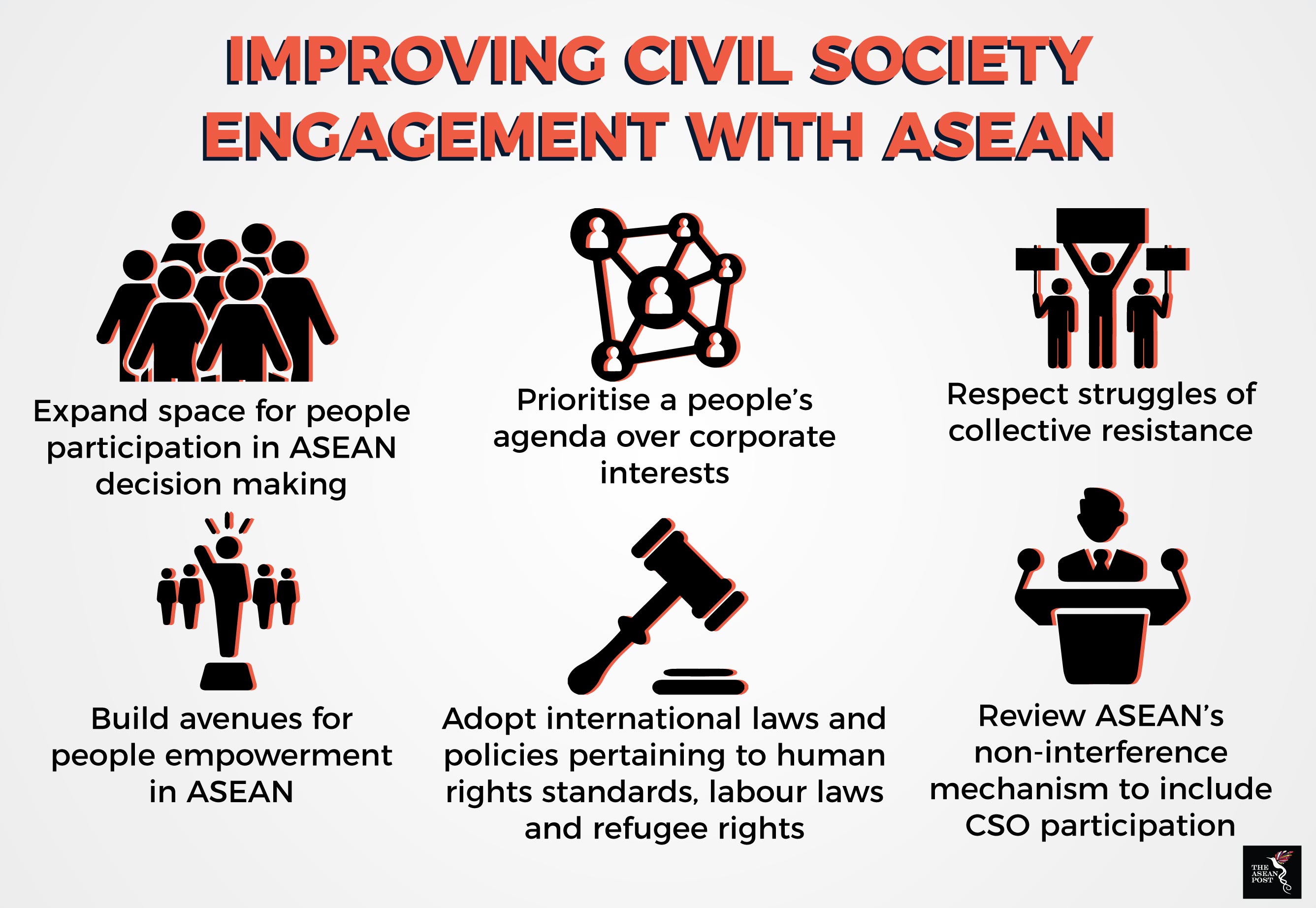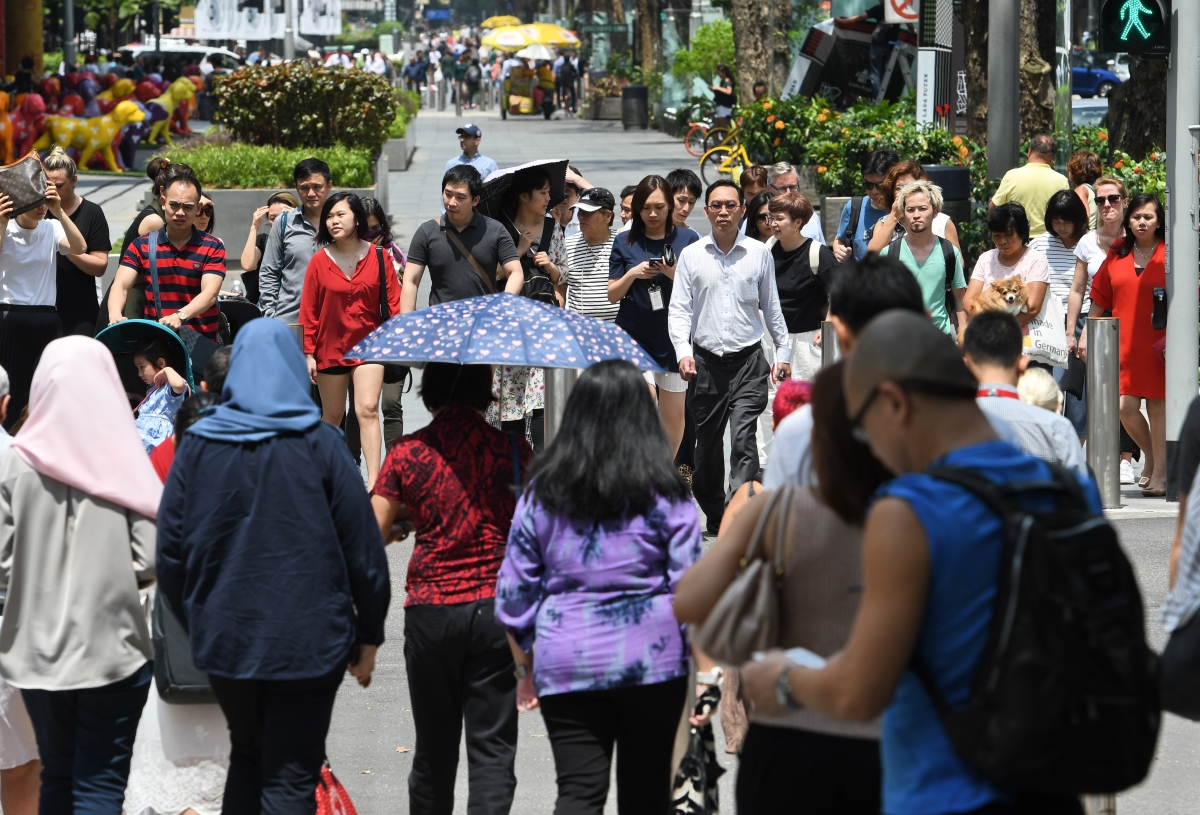As a regional association, ASEAN must avoid the pitfalls of becoming a high-minded, elitist organisation, with its inner workings confined within the hallowed hallways of the ASEAN Secretariat in Jakarta. As it evolves, it must adapt to the needs and demands of its constituents – the ASEAN people.
This is where a strong social presence is necessary to help ensure the voices of the people are heard when the next major ASEAN masterplan or roadmap is drawn up. Making the important link between ASEAN and its people are civil society organisations (CSOs).
State of affairs of ASEAN CSOs
The disconnect between the state and CSOs has been an ongoing struggle for the latter, who want their voices heard at regional-level policymaking. In 2016, under Lao PDR’s chairmanship of ASEAN, Vientiane refused to host the ASEAN People’s Forum (APF), and the event was held in Timor Leste, marking the first time the APF was conducted outside the host country of the ASEAN Summit.
The issue of CSOs not being an integral cog in the ASEAN machinery was heavily highlighted at the most recent APF which took place last November in the Philippines, parallel to the ASEAN Summit.
A recent review of CSO engagement released by the APF concluded that “the level of commitment of ASEAN is perceived to be only on the level of rhetoric, and not as intentional, owing to the fact that enabling environments are not present to facilitate people participation.”
Speaking to reporters after the forum, Jelen Paclarin, chair of the ACSC (ASEAN Civil Society Conference)/APF Regional Steering Committee, said that “genuine people’s participation in the ASEAN has been severely limited.”
She added that despite efforts by CSOs to initiate constructive dialogue in line with ASEAN’s “inclusive and meaningful spaces,” the association “remains largely inaccessible to people.”

Source: Various sources
In a bid to address the issues faced by CSOs, the APF has developed 10 strategies which aim to make ASEAN more inclusive as a regional grouping. These include prioritising a more people-centric agenda (as opposed to corporate interests within ASEAN), expanding space for public participation in ASEAN decision making, as well as adopting international standards in human rights, labour and refugee laws.
Improving civil society participation
Thematically, ASEAN values its people’s contribution as part of its attempt to be more “people-centric,” in line with the aspirations enshrined within the principles of the ASEAN Socio-Cultural Community (ASCC). However, given that the reality is undoubtedly different, the onus falls on ASEAN to be more open and inclusive to the ideas of CSOs as they make regional-level decisions.
A key area of focus for which ASEAN is often condemned of inaction is the issue of human rights. There has been a significant blow to the fundamentals of these rights, as seen in extrajudicial killings in the Philippines, squashing of dissent in Cambodia and the mistreatment of Rakhine Muslims in Myanmar – just to name a few. However, human rights issues are regarded as domestic state affairs. Hence, ASEAN has allowed such humanitarian crises to persist, knowing that “non-interference” would shield it from its inaction and that the ASEAN Secretariat lacks the institutional mandate to act.
That principle – “non-interference” – is what ASEAN risks losing if it agrees to cooperate more with CSOs. Because worries like human rights violations permeate civil society – as such liberties are perceived as universal to all mankind – there would definitely be a call for ASEAN to act strongly and decisively. If the association doesn’t act, it risks being deemed irrelevant.
Hence, the starting point to fixing the gap between CSO engagement and ASEAN diplomats lies with the association engendering cooperation, because it is evident that CSOs are ready to have their voices heard. On the other hand, these civil societies must be mindful of ASEAN’s existing limitations and if need be, seek institutional reform before rattling boardroom tables in Jakarta as they pursue their causes.
Starting at the grassroots level, from the development of social capital to the representation of the people’s interests via CSOs, ASEAN has much to benefit from engaging with these organisations. After all, in fostering a “people-centred” agenda, the association would show it is placing civil society first – a strategy befitting the role it plays as the prime constituent of ASEAN’s regional agenda.
